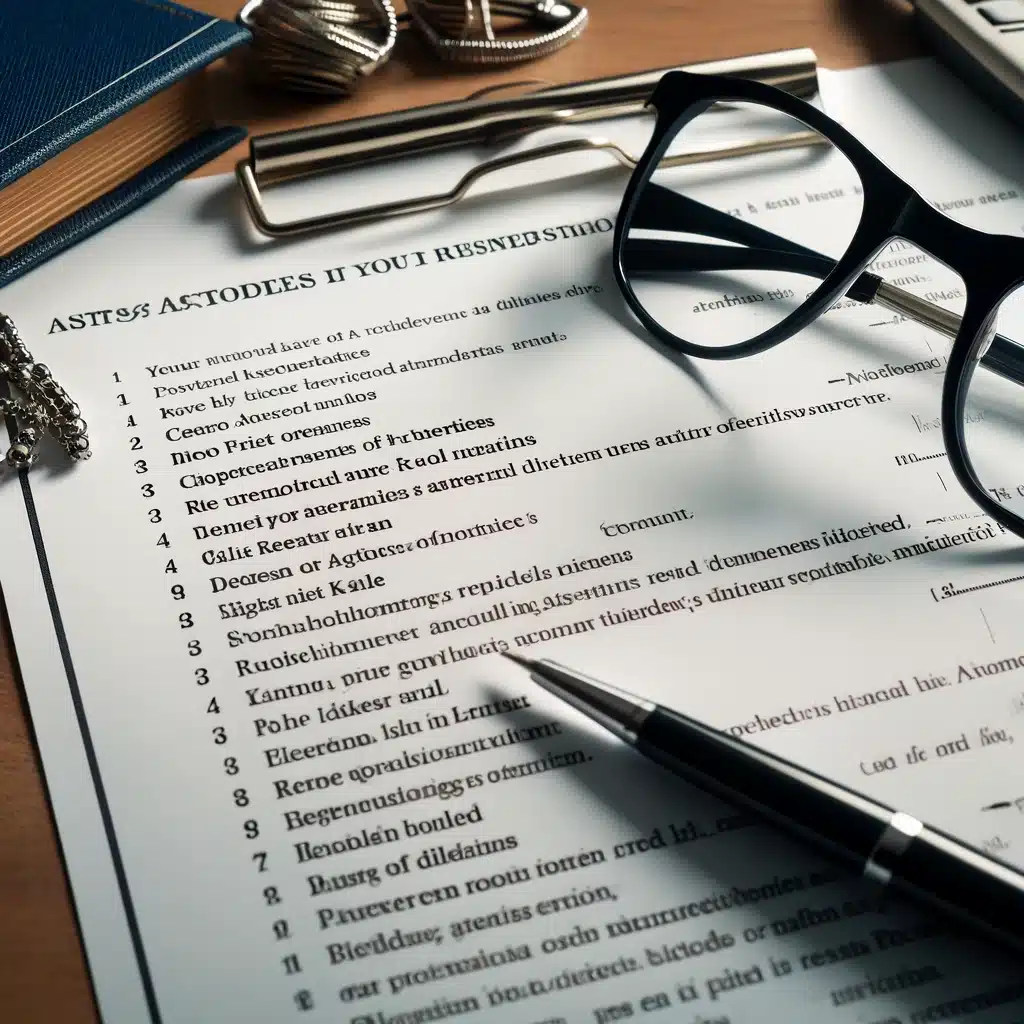Following unsuccessful attempts to negotiate a settlement in your family law case, you’re now gearing up for the temporary order hearing. You and your attorney have strategized on introducing, offering, and admitting evidence crucial to proving the allegations of your case. Whether it’s a child custody case or a divorce, the stakes are high, and both parties are eager to secure a favorable outcome. Despite knowing the significance of the hearing and its components, as discussed in our previous blog, you’re still uncertain about what to expect on the actual day of the hearing.

I always tell clients about temporary orders hearings this way: the preparation that goes into a hearing is like preparing for a play- all the lines are careful scripted and choreographed. Unfortunately for you, a hearing is more like a night at the improv- you don’t know what to expect and your attorney spends the entire time thinking on their feet. It is difficult to have to turn on a dime and experience your case changing before your eyes. This is the challenge of a temporary orders hearing.
In today’s blog post from the Law Office of Bryan Fagan, we will be discussing the importance of knowing what to expect and how to conduct yourself in this setting. I am always hesitant to talk to grown people about how to conduct yourselves but I have learned through the years that it is nice to know what is going on ahead of time rather than having to figure out on the fly how you need to sit, speak and conduct yourself in general.
Be prepared to do some waiting
If you have ever been to the DMV, court or any other governmental setting then you already know to expect to wait a while before your hearing starts. This means that you cannot chat on your phone, make noise, eat food or do anything else that is either noisy or distracting to anyone else in the courtroom. There will be a bailiff walking around the courtroom and if they observe you doing anything like this you will have to talk to the judge about it.

Dressing for court is different than you may be used to. For instance, consider that you are going somewhere that will determine the future of your relationship with your children as well as the future of your property. Since you know how important the outcome of your hearing will be, consider putting your best foot forward in all things. Wearing a suit is never a bad idea for men or women. Jeans with no holes and a tucked in shirt/conservative blouse is not a bad option either.
Avoid wearing clothing typically associated with leisure activities, such as club or bar attire, as this is inappropriate for a court appearance. Ensure clothing is modest, avoiding short skirts, bright colors, excessive jewelry, high heels, or clothing with offensive messaging. Tattoos should be covered, and hairstyles should be conservative to avoid distracting the judge. Arriving early is essential; aim to be at the courthouse at least thirty minutes before the docket is called, typically at 9:00 a.m. Plan transportation in advance to avoid any last-minute issues, lining up alternative rides if needed.
Here comes the judge- sit up straight!
The judge will typically walk into the courtroom from a door directly behind the bench. That is your cue to stand up immediately. The bailiff should instruct the gallery and attorneys to stand up as a show up respect. You will be told by the judge or bailiff when it is ok for you to sit down. Turn your cellphone off or at least to silent or vibrate. I have known some judges to have a rule that all cell-phones are to be confiscated if they ring during court. Those phones can stay with the judge all day and will be ready for pick up at 4:30 that afternoon.
Next, when your case is called, and you move forward to speak to the judge you should do so with respect. Remember that it is fine to speak to your attorney in a casual fashion, but it is not ok to speak to the judge in the same fashion. This is true even if the judge isn’t especially courteous to you. Do not speak over the judge. Wait until he or she is through asking a question before you answer.
If you tend to express frustration through eye-rolling or other disrespectful gestures, it’s crucial to curb these behaviors before your court appearance. Regardless of what is said by the judge or opposing counsel, reacting with hostility or disrespect can lead to repercussions from the judge. Remember, the judge has no personal connection to you and will base their perception solely on your behavior in court. Demonstrating maturity and respectfulness is essential to making a favorable impression.
The actual hearing itself
In Harris County, you will find that most judges ask that you, your opposing party and your attorneys approach the bench and will stand for your hearing. In smaller counties around Harris you and your attorney will be seated at a table with your opposing party and their lawyer at a table right next to yours. Once the judge speaks to the attorneys about what the roadmap for the hearing will look like, the judge will go on the record. That means that the hearing will be recorded for future reference and has officially begun.
Some judges prefer that the attorneys give opening statements, although this does not always happen in temporary orders hearings. Whichever party filed the lawsuit will go first in presenting their witnesses and introducing their evidence. Once your attorney calls and questions a witness the other side will be able to cross examine the witness. Any questions in response to the cross examination that your attorney may have (known as re-direct) can be asked. That witness will then be allowed to step down from the witness stand.
After both attorneys have presented their witnesses and evidence, the judge will review the case documents and then announce their decisions in court. These decisions are not official until one of the attorneys drafts an order based on the judge’s rulings. Once temporary orders are in place, there will be a period of adjustment as you and the opposing party live under those orders. During this time, you may find aspects of the orders that need adjustment for the final orders, which will be the focus of negotiations in the weeks following the temporary orders hearing.
Discovering more about your opponent’s case
Next up, you and your opposing party will likely work to get information about one another through a process called Discovery. You and your opposing party will be working to get your hands-on information that will help you decide how to approach the issues that are relevant to your case in final orders. To do so, you would like to learn more about what information your spouse or opposing party has access to. Discovery allows you to do just that.

Taking an inventory of all the property that is relevant to your case is a good first step and is something that the other side will almost surely ask you for. This means that you should go through your home ahead of time and take photos of file cabinets, closets, the garage, bedrooms, drawers, gun safes, etc. to make sure that you document all the property that will need to be divided in your divorce. This is especially helpful in the event that you have to leave the house and move out. You don’t want to be in a situation where your spouse moves items or sells them without your permission.
You and your spouse will exchange your lists of property and you can get a better idea of what he or she believes to be in existence and what part of the property is their separate property, your separate property and what part is community property. Both assets and debts should be accounted for in an inventory. If you and your opposing party do not feel that it is necessary to do a full-fledged discovery search then this may be the only information that is exchanged. Otherwise, you and your opposing party will do a more formal request for information with one another.
Conclusion
In navigating the complexities of a family law case, the temporary order hearing stands as a pivotal moment where strategies are put to the test and decisions are made that can significantly impact the outcome. Despite thorough preparation and an understanding of the proceedings, uncertainty about the day of the hearing can linger. However, with the guidance of experienced legal counsel and a clear grasp of the key aspects discussed in prior preparations, individuals can approach the temporary order hearing with confidence, ready to advocate for their interests and pursue a favorable resolution.
In tomorrow’s blog post we will go through the different sorts of discovery requests that may be made in conjunction with your family law case.
Questions about your own family law situation? Please contact the Law Office of Bryan Fagan
If you have any questions about the material that we covered today then please do not hesitate to contact the Law Office of Bryan Fagan. We work hard to provide you with information in blog format that can educate you about relevant topics in family law. However, these blogs cannot be taken as specific legal advice because we don’t represent you and certainly don’t know your exact circumstances.
With that said, to learn more about our office please do not hesitate to contact the Law Office of Bryan Fagan today. We offer free of charge consultations six days a week here in our office. These conssultations are a great opportunity to ask questions and to receive honest feedback from attorneys who have helped people in our community who are facing the same circumstances that you are. Thank you for spending some time with us today and we hope that you will join us tomorrow, as well.
Ebook
![Adobe Stock 62844981[2]](https://www.bryanfagan.com/wp-content/uploads/2023/09/AdobeStock_628449812.jpeg) If you want to know more about what you can do, CLICK the button below to get your FREE E-book: “16 Steps to Help You Plan & Prepare for Your Texas Divorce”
If you want to know more about what you can do, CLICK the button below to get your FREE E-book: “16 Steps to Help You Plan & Prepare for Your Texas Divorce”
![Divorce Wasting Assets[4]](https://www.bryanfagan.com/wp-content/uploads/2023/09/Divorce-wasting-assets4.jpeg) If you want to know more about how to prepare, CLICK the button below to get your FREE E-book: “13 Dirty Tricks to Watch Out For in Your Texas Divorce, and How to Counter Them” Today!”
If you want to know more about how to prepare, CLICK the button below to get your FREE E-book: “13 Dirty Tricks to Watch Out For in Your Texas Divorce, and How to Counter Them” Today!”
Other Articles you may be interested in:
- What do you want to get out of settlement negotiations in your Texas divorce?
- Maximizing your share of the marital estate division in a Texas divorce
- Roadmap of Basic Divorce Procedure in Texas
- 6 things You Need to Know Before You File for Divorce in Texas
- I Want a Texas Divorce but My Husband Doesn’t: What can I do?
- Can I sue my spouse’s mistress in Texas?
- 6 Tips – On How to prepare for a Texas Divorce
- Child Custody Basics in Texas
- 6 Mistakes that can Destroy Your Texas Divorce Case
- A Rollercoaster Ride of Emotions: Navigating Temporary and Emergency Custody Orders in Texas
- What are Temporary Restraining Orders and Temporary Orders In The Context of a Texas Divorce?
Bryan Fagan, a native of Atascocita, Texas, is a dedicated family law attorney inspired by John Grisham’s “The Pelican Brief.” He is the first lawyer in his family, which includes two adopted brothers. Bryan’s commitment to family is personal and professional; he cared for his grandmother with Alzheimer’s while completing his degree and attended the South Texas College of Law at night.
Married with three children, Bryan’s personal experiences enrich his understanding of family dynamics, which is central to his legal practice. He specializes in family law, offering innovative and efficient legal services. A certified member of the College of the State Bar of Texas, Bryan is part of an elite group of legal professionals committed to ongoing education and high-level expertise.
His legal practice covers divorce, custody disputes, property disputes, adoption, paternity, and mediation. Bryan is also experienced in drafting marital property agreements. He leads a team dedicated to complex family law cases and protecting families from false CPS allegations.
Based in Houston, Bryan is active in the Houston Family Law Sector of the Houston Bar Association and various family law groups in Texas. His deep understanding of family values and his professional dedication make him a compassionate advocate for families navigating Texas family law.




